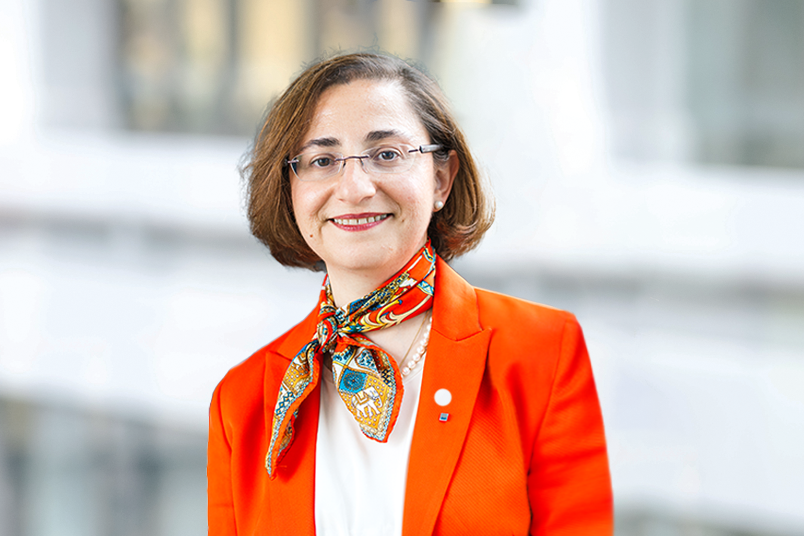Women of ERCOFTAC
Interview with Prof. Francesca Di Mare
Chair of Thermal Turbomachines and Aeroengines Managing Director, Institute of Energy Technology Ruhr-Universität Bochum, Germany

Prof Francesca Di Mare
Who is your academic background?
I got my first degree in Chemical Engineering in Italy, at the University Federico II, in Naples and then went on to do my PhD (Mechanical Engineering) at Imperial College, London, under the supervision of Prof. W. P. Jones, who is one of the “fathers” of turbulence modelling and first devised the k-ε model (see the seminal paper Jones, W. P., & Launder, B. E. (1972). The prediction of laminarization with a two-equation model of turbulence. International journal of heat and mass transfer, 15(2), 301-314.)
What is your research specialism?
I am specialised in numerical simulations of complex flows for propulsion and power, so all that encompasses the aero-thermal characterisation of fluid energy machines in all their components (compression, combustion, expansion). The accurate and reliable prediction of flow conditions in rotating machinery especially considering non-conventional working fluids is a fundamental component of the development of resilient, sustainable propulsion and power technologies.
What projects are you working on currently?
I look after quite a few exciting projects and I am particularly proud of coordinating a Horizon Europe consortium developing new flexible propulsion concepts for short/medium-range air transport bridging the technology gap between drop-in sustainable aviation fuels and hydrogen. The project is called MYTHOS (https://mythos.ruhr-uni-bochum.de/), started in January 2023 and will run over four years and we are absolutely excited about the results and contribution we can provide to cleaner aviation towards complete climate neutrality in 2050.
Was there a woman who inspired you to get into your field?
No, there was no particular woman inspiring me. I generally don’t get inspired by people, I must admit, rather by the beauty of nature. And my deepest thanks go to my parents and my brother for fostering my inclinations and helping me realising my dreams. I was also very fortunate to have fantastic mentors, Prof. Jones (Imperial College) and Prof. Janicka (TU Darmstadt), who taught me to be fiercely independent and convinced of my own ideas.
What motivates you to work on fluid mechanics, or what you find fascinating about it?
I love understanding how things work. As I was a child I used to spend hours looking at candles and flames in general, at cloud pattern in the sky, at leaves whirls in autumn, not to mention the flow patterns developing in stars or intergalactic spaces. I just wanted to understand why certain things happened, spanning the fields of fluid mechanics and gas dynamics and essentially this is what motivates me still. Also, I am fascinated by the power unleashed by the fantastic machines I investigate, I can’t imagine anything more exciting that understanding how to build them more powerful, more compact and cleaner.
What advice would you give to young women wanting to get into STEM?
Just to do what they like, regardless of being a woman or not and be fascinated by the beauty of nature, not necessarily wanting to be like someone else. That’s my personal opinion.
What are the benefits of being a member of ERCOFTAC?
ERCOFTAC offers unique opportunities of networking being a member of ”THE” fluid-dynamics community par excellence. This is a great asset especially for fostering and mentoring young people.
